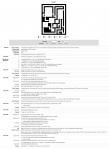Hussar
Legend
People spend millions of dollars painting buildings, too. That doesn't show that painting buildings is per se an artistic endeavour - maybe it is (if we're painting St Peters), maybe it's not (if we're painting a block of flats to protect the exterior against the weather).
I'm a published author in a natural language based but technical discipline. (Or in fact two such disciplines: law and philosophy.) I deliver lectures and other sorts of public or semi-public addresses as a key part of my job. I know a fair bit about writing and a little bit about spoken presentation.
When I referee an article and send it back for rewriting because it's confused; or when I mark up a student's work and tell her or him how it needs to be restructured to make the argument clear; these are not literary considerations. They have nothing to do with evoking emotion through the use of formal compositional/recitational devices.
I guess someone somewhere once has been moved by the ingenuity of the Ikea instructions - the world is full of all types - but I don't think anyone is expecting the instruction drafter to be nominated for the Nobel prize.
So, in your mind, an RPG is akin to technical writing? No emotion whatsoever. The only emotional connection comes when you put together that shelf, as it were?
I would imagine, as well, when writing academic papers, that evoking an emotional response would not be the point either.
But, when writing a scenario for an RPG, evoking an emotional response very much IS the point.











